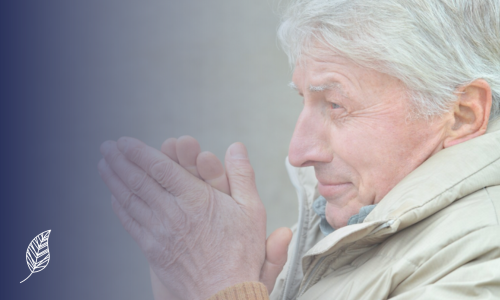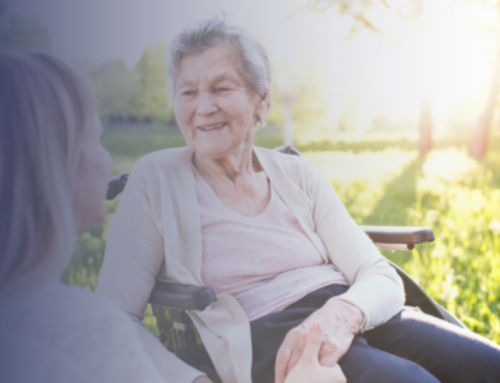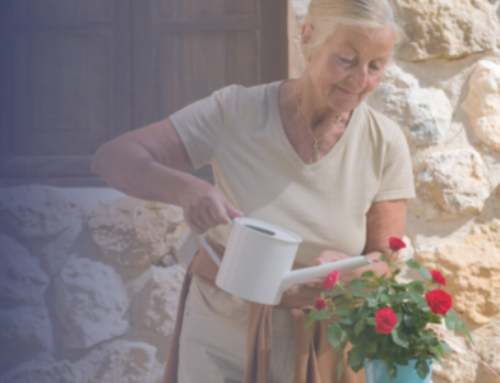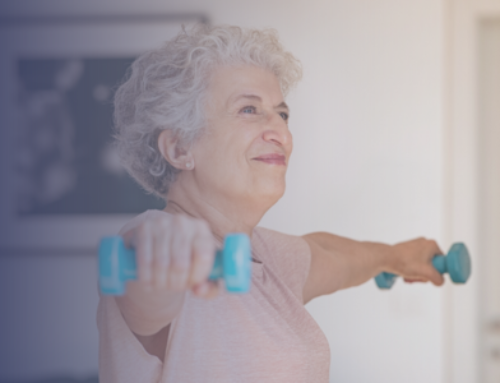Seniors and Changing Seasons

Has an elderly loved one been behaving differently as of late? A bit irritable or out of sorts, perhaps? The cause of this change in behavior could be the change in seasons.
While many of us could live without the early sunsets of winter, for many older adults–especially those with cognitive impairment or dementia—the shorter days are much more than an inconvenience. They can cause serious disruption to their routines, as well as the routines of their caregivers. Unfortunately, these disruptions can last longer than a couple of days.
Sundowner Syndrome
According to the Alzheimer’s Association, as many as one in five people with dementia suffer from sundowner syndrome, a cluster of symptoms and behaviors that includes fear, sadness, wandering, insomnia, anger, agitation or even hallucinations. These symptoms often worsen for several weeks after a time change, when normal routines are thrown out of order. The longer nights can throw off circadian rhythms and disrupt meals and sleep.
But as you probably know, those with Alzheimer’s aren’t the only ones who feel out of sorts around this time of year. The good news is that, as the darker, colder days arrive, you can take charge of the situation and make a plan for creating a safe, joyful, comforting environment that will allow everyone to weather seasonal changes more easily.
If overstimulation is part of your loved one’s experience, try calming music, quiet conversation, or reading a favorite book to create a more tranquil atmosphere. Relocating to a calmer spot away from noisy family activity can help as well.
Maintaining a regular schedule is important, too. Stay busy and active during the day, but don’t over-plan. Build in time for rest; however, try to discourage long naps that could disrupt nighttime sleep.
Gradual changes will ease the transition for sensitive internal clocks. Try to move mealtimes in 15-minute increments until they align with the “new” times. For example, if you normally eat at six in the evening, keep dinner time at five o’clock at first, and gradually move toward six. Open drapes during the day to take advantage of the sunlight and turn the lights on in your home well before dark to simulate longer days.
Help your loved one get ahead of the winter blues by getting involved in activities that will ward off social isolation and mental decline. Physical exercise such as brief walks outside in the sun or chair workouts in the living room, mental activities like crossword puzzles and brain games, and social activities with friends can help alleviate cabin fever. Visits with friends and loved ones can go a long way in fighting the winter blues, even if those visits take place via FaceTime, Skype or Zoom.
However, if you notice a persistent low mood that doesn’t pass for several weeks no matter what you do, it could be Seasonal Affective Disorder (SAD). Try sitting in front of a light box for 20 minutes each morning to combat light deprivation, and don’t be afraid to seek help if sadness or lack of appetite doesn’t seem to pass.
Health problems related to thyroid disorders, diabetes, arthritis, Parkinson’s Disease, and Reynaud’s can be worsened by cold weather and many medications can affect circulation and body temperature. Chronic pain may worsen, and the risk of hypothermia is much higher for older adults. Knowing this, make sure the heat is set at a comfortable temperature in the home and that clothing is warm and consists of several layers for time spent outside. Gloves and hats are important to keep extremities safe from frostbite.
Reduce the risk of falls on snow and ice by keeping walkways and steps clear and encouraging proper footwear like boots with textured, non-skid soles. Remember, too, that it may take more time and effort to get to appointments during the winter months, so try to build in a few extra minutes for dressing and traversing snowy paths.
Caregivers Need Attention Too
The busy holiday season can also lead to caregiver stress that, in turn, creates a more stressful environment for your loved one. Don’t forget that you need attention, too. Practicing self-care will “refill the well” and allow you to better guide your loved one through the change of seasons. Letting others take some of the burden from your shoulders will allow you to focus on spending quality time with the ones you love.
Know that Loretta and the Team at Simplify Senior Living are waiting in the wings to provide the help and support you need to create a sunnier environment, especially through the darker days of fall and winter!





